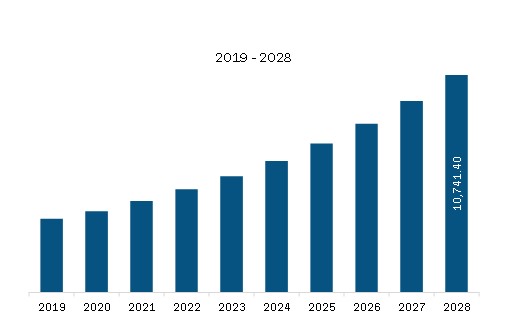The increasing awareness of the harmful effects of synthetic cosmetics, such as respiratory distress, skin allergy, and others, has propelled the shift of consumers’ preference toward halal cosmetics. Additionally, the growth of the Islamic population across the region is augmenting the expansion of the halal cosmetics market. With the growth envisaged in the coming years, new start-up cosmetics players are emerging, and the sector is diversifying its product portfolio.
In addition, the surge in internet penetration has supplemented the growth of e-commerce and online retailing in the region. This has led to a lucrative opportunity for Halal cosmetics manufacturers to sell their products online to increase their reach. Large manufacturers are, thus, leveraging the reach of social media to spread awareness about halal cosmetics to consumers. The North America halal cosmetics market is expected to grow at a good CAGR during the forecast period.

The North America halal cosmetics market is segmented on the basis of product type, category, distribution channel, and country. Based on product type, the market is categorized into skincare, haircare, makeup, and others. In 2022, the skincare segment emerged as the leading segment. Based on category, the market is segmented into men, women, and unisex. In 2022, the women segment has been leading the market. Based on distribution channel, the market is categorized into supermarkets and hypermarkets, specialty stores, online retail, and others. In 2022, the specialty stores segment held the largest market share.
Based on country, the market is fragmented into the US, Canada, and Mexico. The US is leading the regional market with a substantial share in 2022.
Inglot Cosmetics, IVY Beauty Corporation, OnePure LLC, PHB Ethical Beauty Ltd, and Sampure Minerals are the leading companies in this regional market.